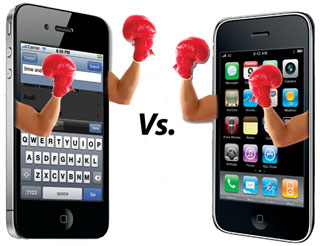Let’s face it, we are now living in a mobile world. Gone are the days when you have to wait until you are at home in front of a computer to gain access to the web. More and more people are accessing the web from their phones, and as a matter of fact, the number of users accessing the internet using a mobile device has far surpassed the number of users relying on desktop. Marketers of brands are increasingly revamping their marketing strategies to include Responsive Website Marketing, which simply means that they adapt the design of their websites to have compatibility with a variety of digital platforms. These include, smartphones, tablets, and other handheld devices. Mobile websites have been very useful at providing us with the information that we need, anytime, anywhere. Picture this…you are preparing for a restaurant outing with friends and you want to get a sneak peek at the menu…your mouth is watering as you prepare to see what you are going to eat tonight. You pull out your Galaxy S4 or iPhone5 only to discover *gasp* the website is not compatible with your mobile device! To make matters worst, they do not even have an app available. How could they?! There is no worst feeling than going on the web to find a brand or company only to discover that the website is mobile incompatible. Companies that have not quite yet come up to speed with mobile web, can ruin their brand image as they will appear “outdated”. Mobile sites are desirable among users because:
1) They are compatible across a variety of different devices. Responsive Marketing allows websites to be structured according to the device that it is displayed on.
2) They are easily searchable using search engines, and can be found through websites such as Google, Yahoo and Bing
3) They are much easier to share among networks via email and social media
However, despite the benefits that mobile web provides, there is also a new sheriff in town, and its name is Mobile Apps. Mobile apps have recently surpassed mobile websites in consumer preferences, as Smart Insights reports that 89% of audiences desire to use mobile apps over mobile websites. Mobile apps require users to download before using, however they are highly interactive and are designed with the customer’s needs in mind which is why they are so popular and effective. Users can get exactly what they need without sifting through all of the “extra stuff” as I like to say. The apps are normally very specific, targeted and convenient. Similar to Mobile Web, Mobile Apps also produce benefits:
1) Easy and Convenient – Mobile Apps are literally just one touch away. Think of it as having instant access to your favorite brands directly on your device!
2) Faster – Sometimes those mobile sites can be so slow depending on whether you have 4G or 3G or whether or not the site is content heavy. Apps are much quicker to pull up on mobile devices
3) Engagement, Engagement, Engagement! – Mobile apps are built with the user in mind and are designed to be interactive and engaging
Personally, if I had to choose between the two mobile platforms, I am a mobile website type of girl. I perform a lot of online searching for just about everything you can name, and I prefer to interact via mobile websites. I personally feel like the information is more detailed on mobile websites than on apps. However when it comes to social media sites such as Facebook, Instagram, and Pinterest, I am team App all the way! The customization, speed and convenience is impeccable, and cannot be replaced using the mobile websites. Overall, both mobile sites and mobile apps offer its unique advantages over the other, it all comes down to a matter of preference. So based on the information you have read thus far, I pose this question….Which team are you on? Team Mobile Web or Team Mobile App. Let me know by taking the Poll below!

I am Apps girl all the way!! I love the convenience and the ability to customize. Your blog has great incite. Thank you for the information
LikeLike
Being able to communicate to customers through their preferred choice of communications is critical in order to successfully engage customers. Customers will continue to be mobile – and — devices will continue to evolve. Responsive design can be a key strategy to communicate with customers over multiple devices.
LikeLike
You make a key point that responsive design is a key strategy to communicate with a broader audience. Instead of choosing one platform over the other. I think it is best for marketers to have both a mobile website and a mobile app to satisfy a wide-range of consumer needs.
LikeLike